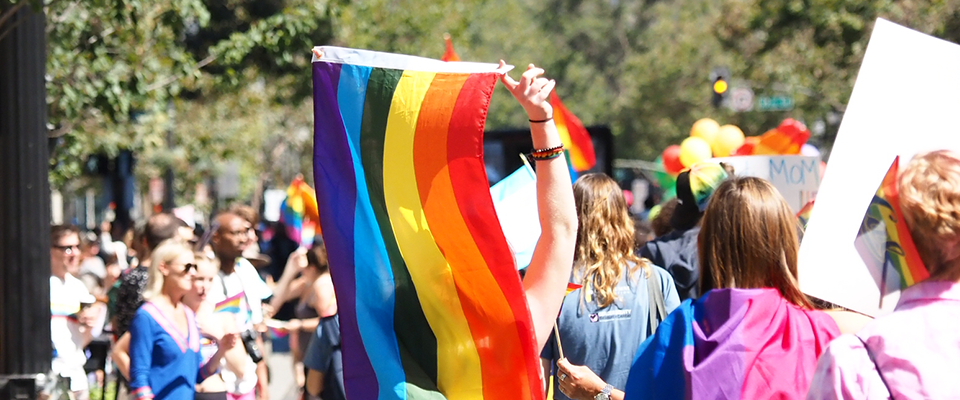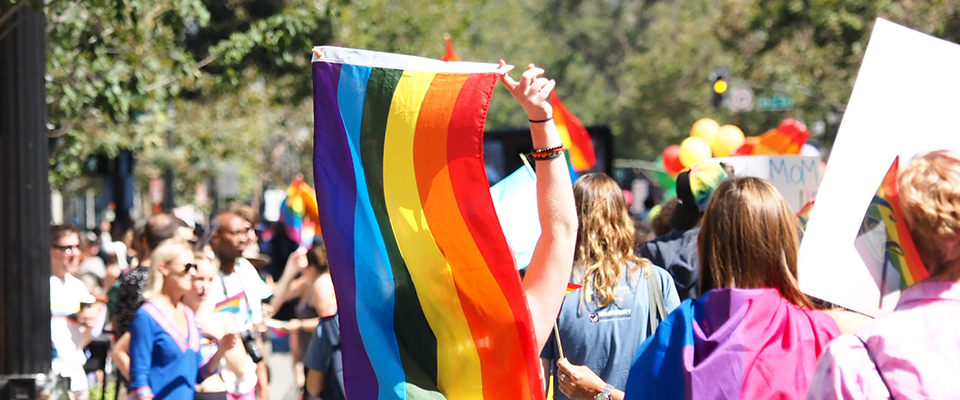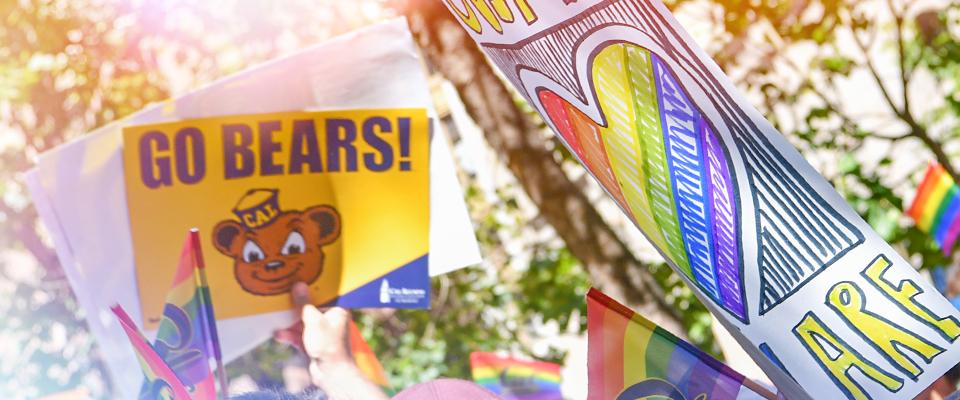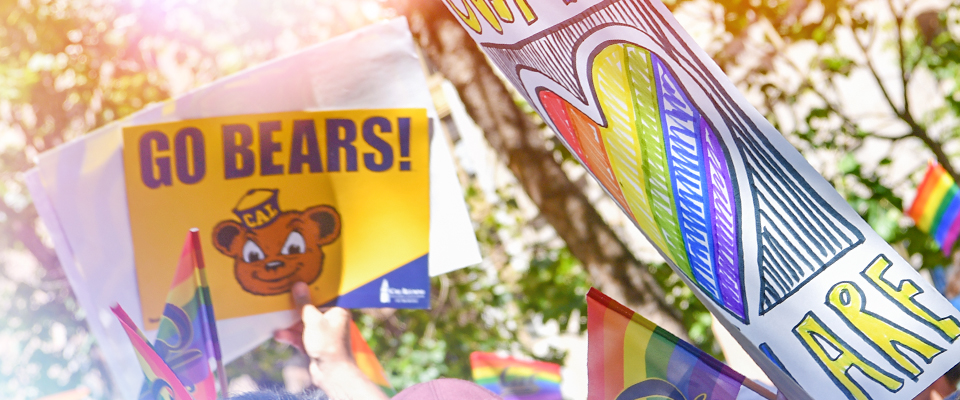In a six-part series, we highlight a few of the moments, movements, and people that made their mark on Cal’s LGBTQ+ history. We move through the decades, beginning in an era of secrecy and continuing through today.
Gender Studies at UC Berkeley
LGBTQ studies as an academic field found early roots in the 1930s. The development of queer theory, however, found momentum several decades later in the 1970s.
The Women’s Liberation Movement of the late 60s and early 70s pushed forward the nationwide movement to create women’s studies programs as part of college curricula.1 The first LGBTQ studies undergraduate course in the United States was taught at UC Berkeley in 19702, but even when Gloria Bowles Ph.D. ’76 was teaching on campus in the mid-70s, there were very few women’s studies courses being taught at Cal. Bowles was a comparative literature professor and founding member of UC Berkeley’s Women’s Studies Program.
On the UC Berkeley campus, Bowles and other professors, including Carol Christ, formed a committee to lobby for the creation of the women’s studies major. “We wanted to make an undergraduate study and research better than what we had experienced as students,” Bowles recalled during a roundtable discussion celebrating the 20th anniversary of the Gender and Women’s Studies programs in 2011.

The Berkeley Women’s Studies Program was officially introduced in 1976 for students to pursue the academic study of women in history and society. The women’s studies committee would lobby for its official review for several years thereafter. In 1981, the program was reconfigured into a department and finally became an official academic department in 1991.
Around this time, more complex studies around categories of sexual identity and gender also emerged. In 1990, Berkeley professor and queer theorist Judith Butler published one of her first major works: Gender Trouble: Feminism and the Subversion of Identity. In her book, Butler challenges the biological accounts of binary gender identity, instead arguing that gender, sex, and sexuality are culturally constructed. This book, and others of hers to follow, influenced feminist and queer theory and laid the foundation for future generations of scholars and activists.
In response to expanding thought around gender, race, ethnicity, and sexuality, the Women’s Studies Program changed its name to the Department of Gender and Women’s Studies (GWS) in 1995. That same year, Berkeley also established an interdisciplinary LGBT studies minor. The minor addresses sexuality and non-heteronormative relationships throughout history, as well as explores sexuality’s place in modern culture.
Gender Equity in Academics
GWS makes clear that the LGBT studies minor isn’t just for and about lesbian, gay, bisexual, or trans individuals. “It includes all humanity in its purview,” its website states. Continuing its support of groups that have had to fight (and still fight) for equitable treatment in society, GWS published a statement in support of trans and gender non-conforming people. Echoing Butler’s philosophy, the department states:
“Gender binary as a system has been established to maintain the power of normative structures. This system functions as a disciplinary tool to stigmatize, marginalize and mark out non-conforming subjects including transgender people, queers, people of color, immigrants, indigenous communities and nations, and many global southern societies. This form of violence is unacceptable given that gender is not a natural category but constructed historically and contextually through various structures of power and privilege.”
Since the early 1970s, it has been an ongoing endeavor for Cal to enfeeble the hold that normative structures, such as gender and identity, have over many individuals. Both in class and on campus, students and faculty are spotlighting the need to discuss gender and sexuality holistically, intelligently, and meaningfully, and to maintain an inclusive climate in which this can be possible.
1 UC Berkeley Events. “Founder’s Roundtable – Gender & Women’s Studies, UC Berkeley”. Filmed October 2011. YouTube video, 1:31:59. Posted October 2011. https://www.youtube.com/watch?v=AB_EppIJb3s.
2 MacNaron, Toni A. H. Poisoned Ivy: Lesbian and Gay Academics Confronting Homophobia. Philadelphia: Temple Univ. Press, 1997.




















